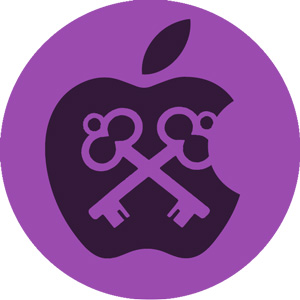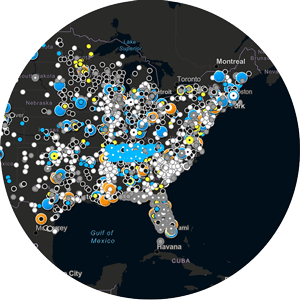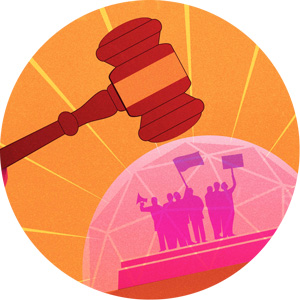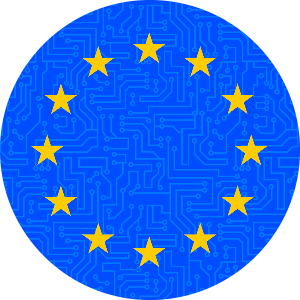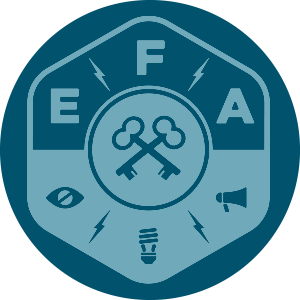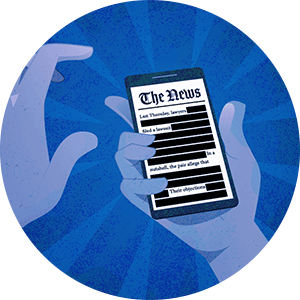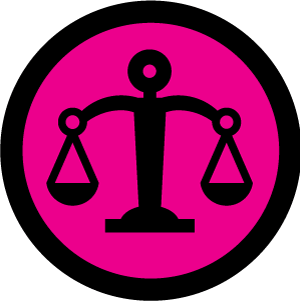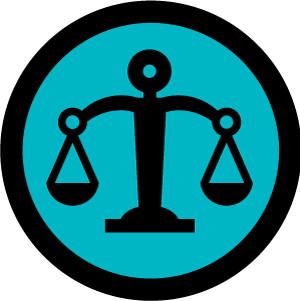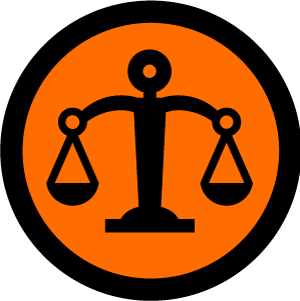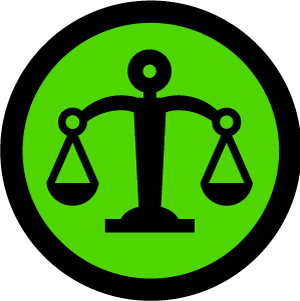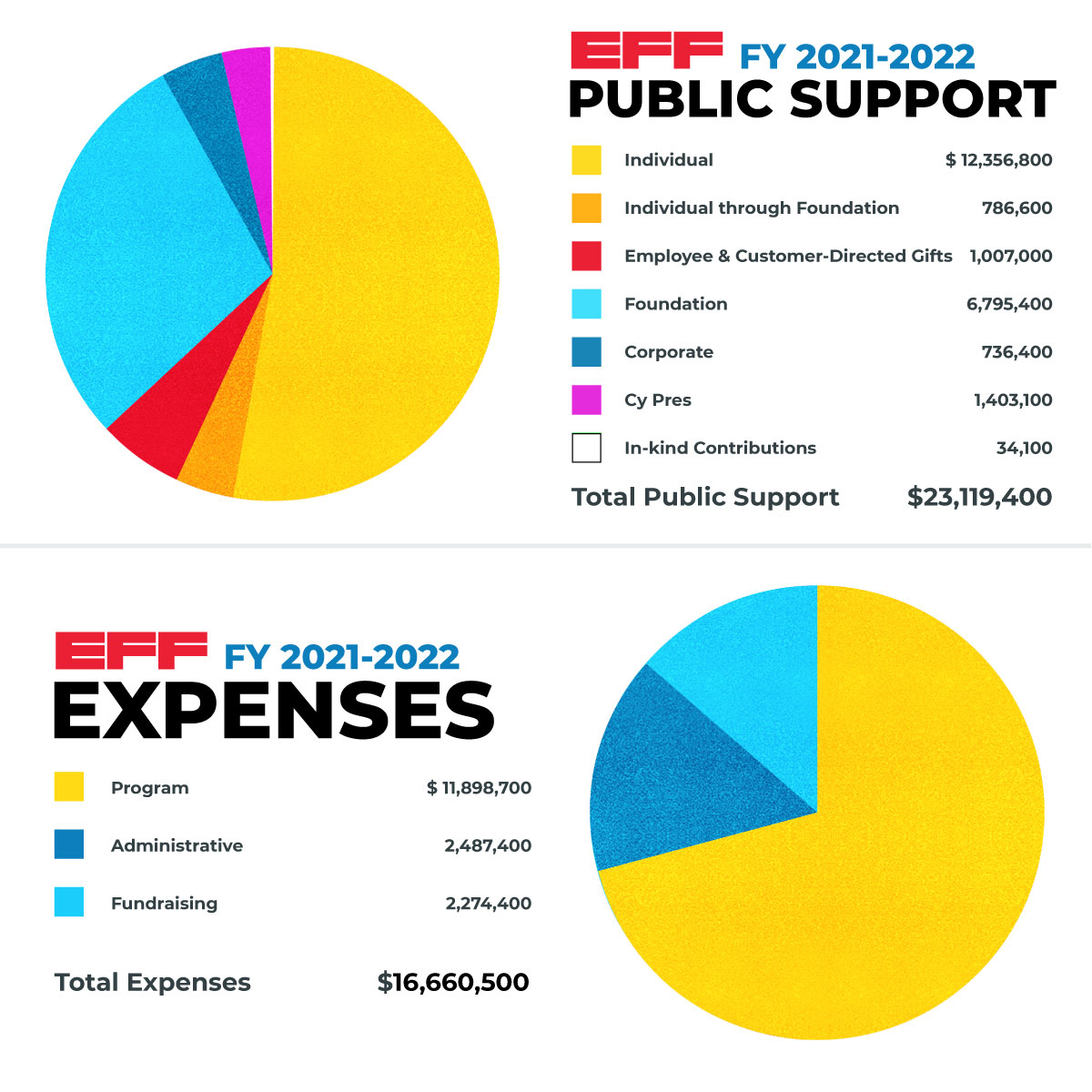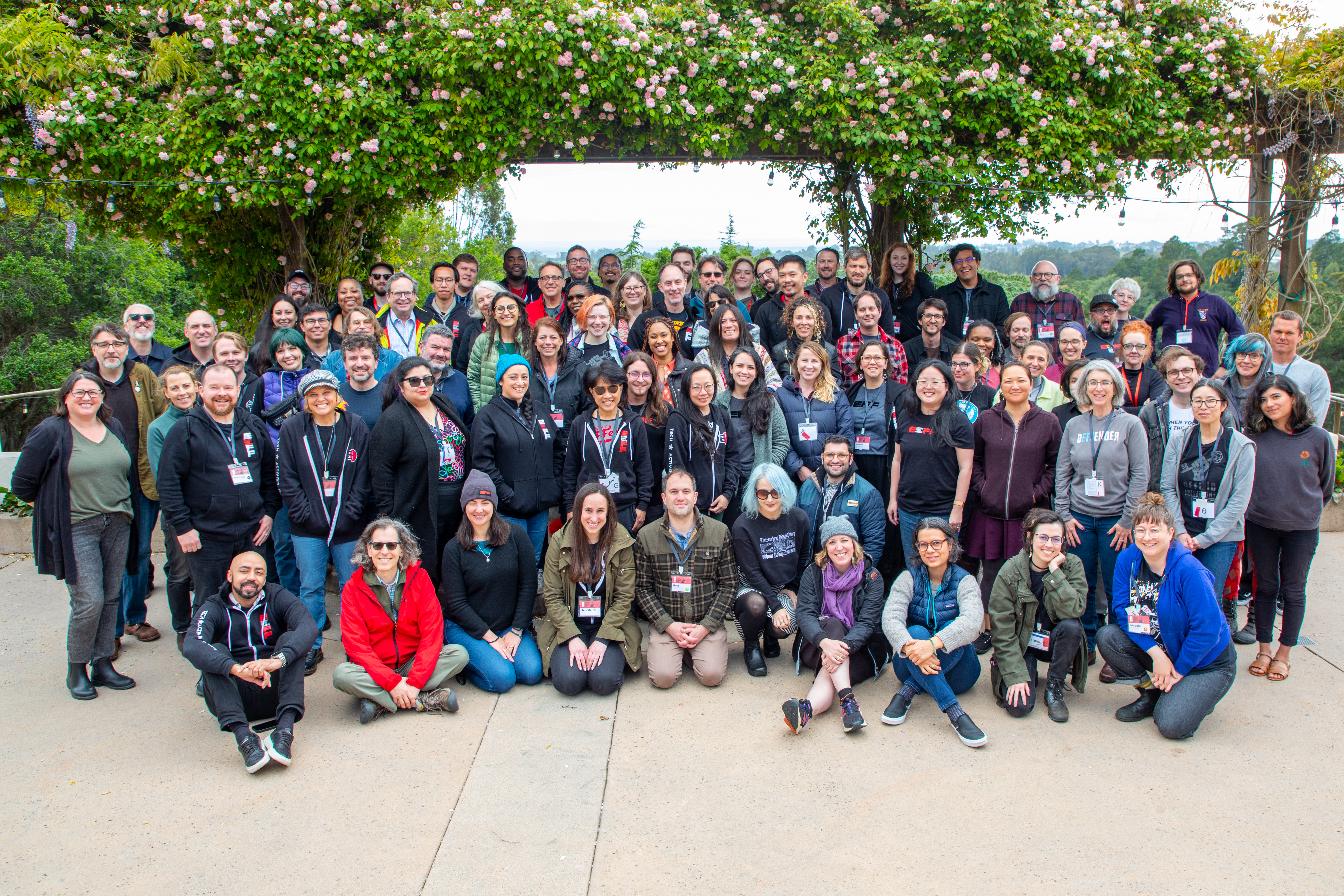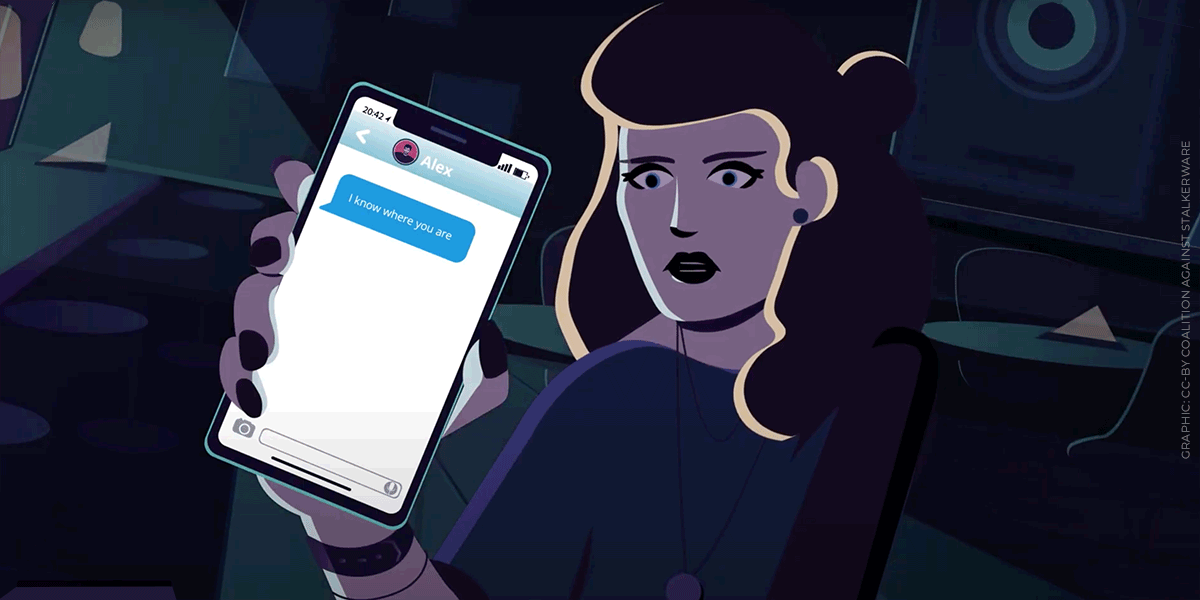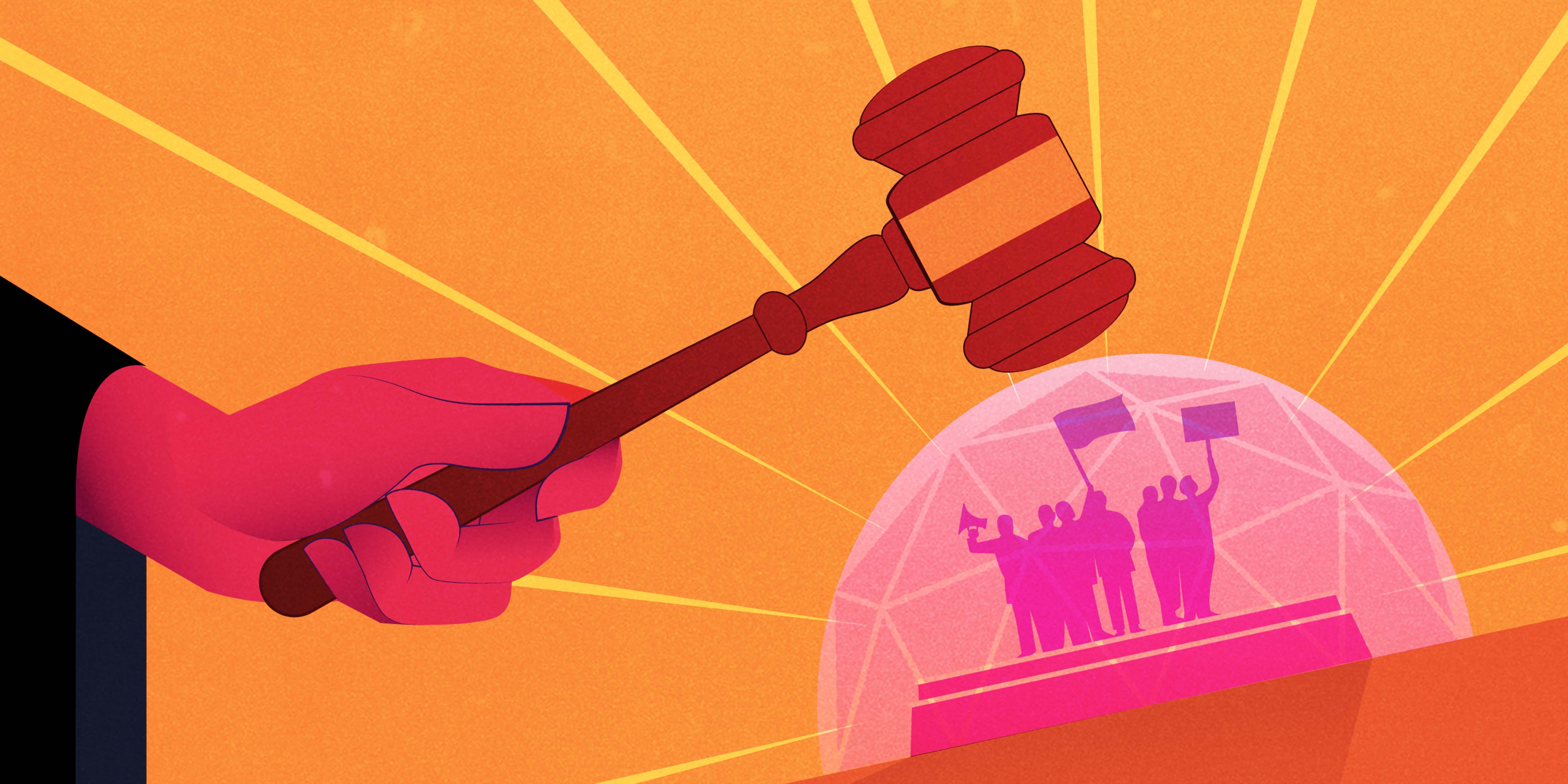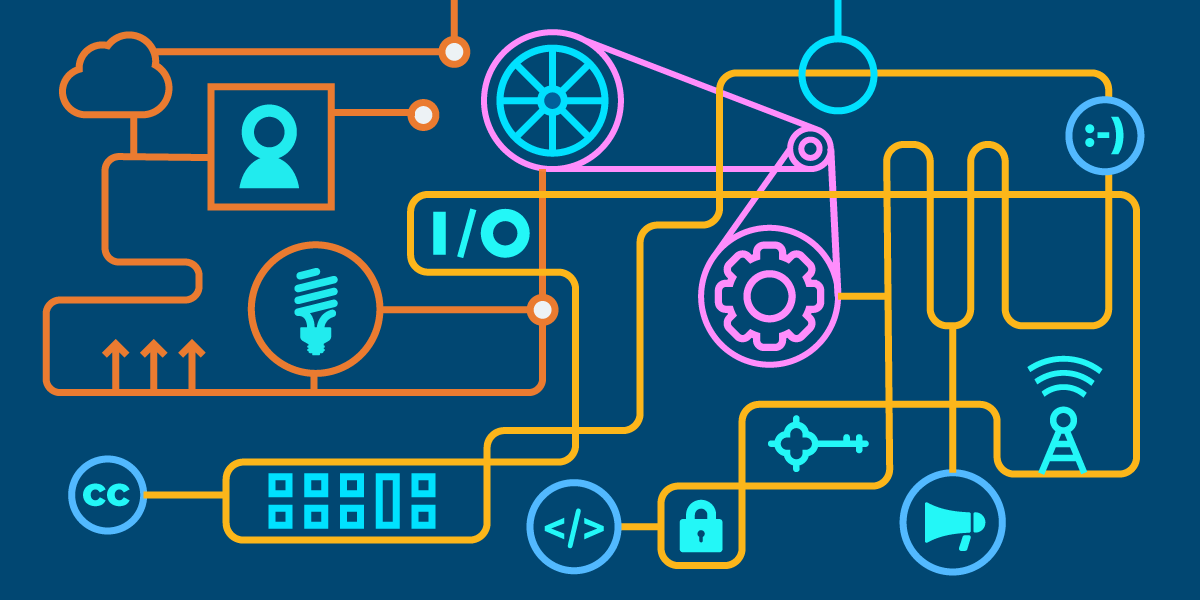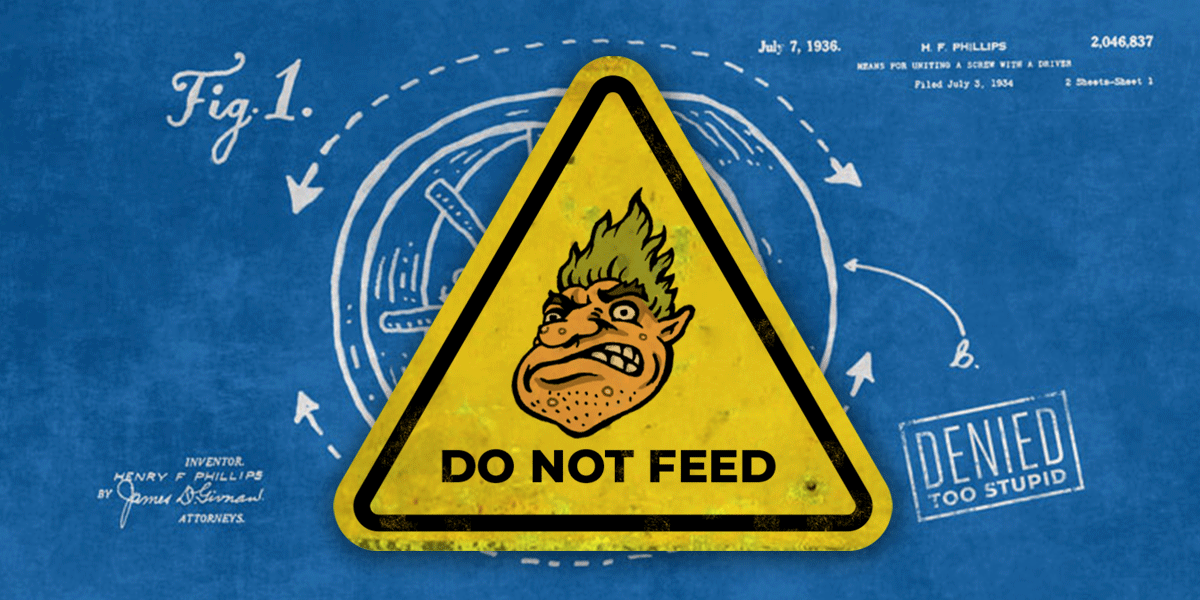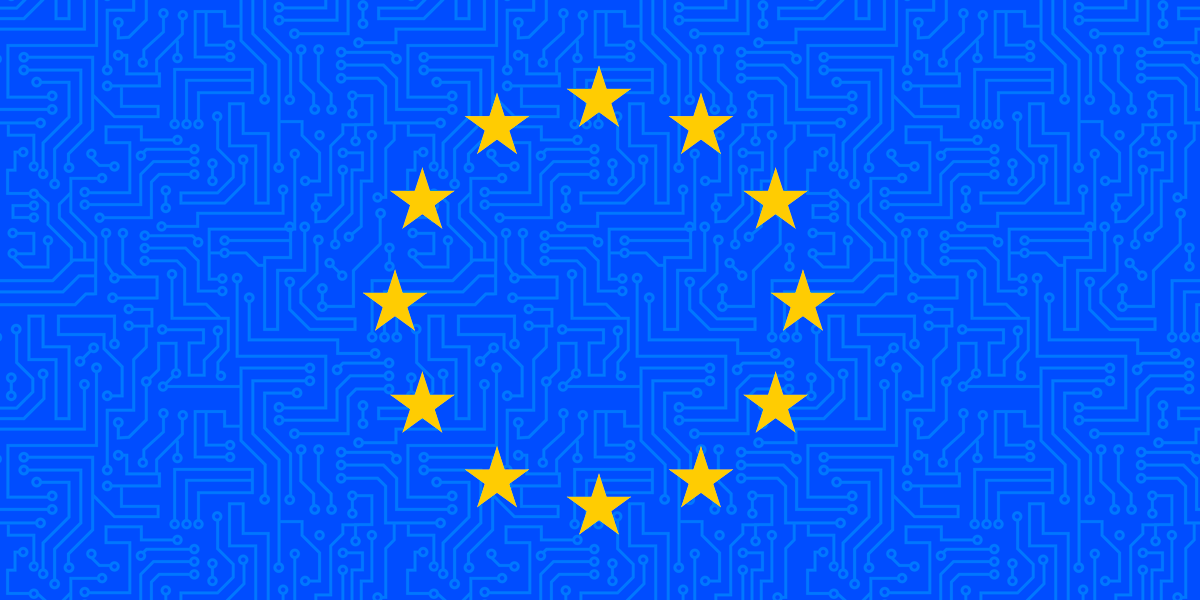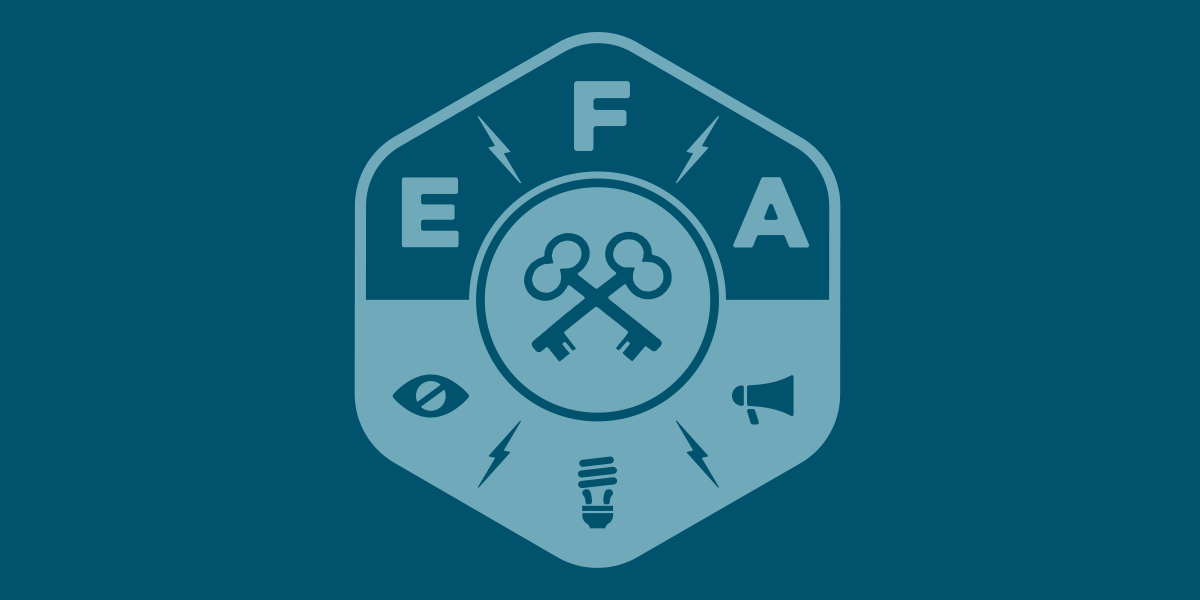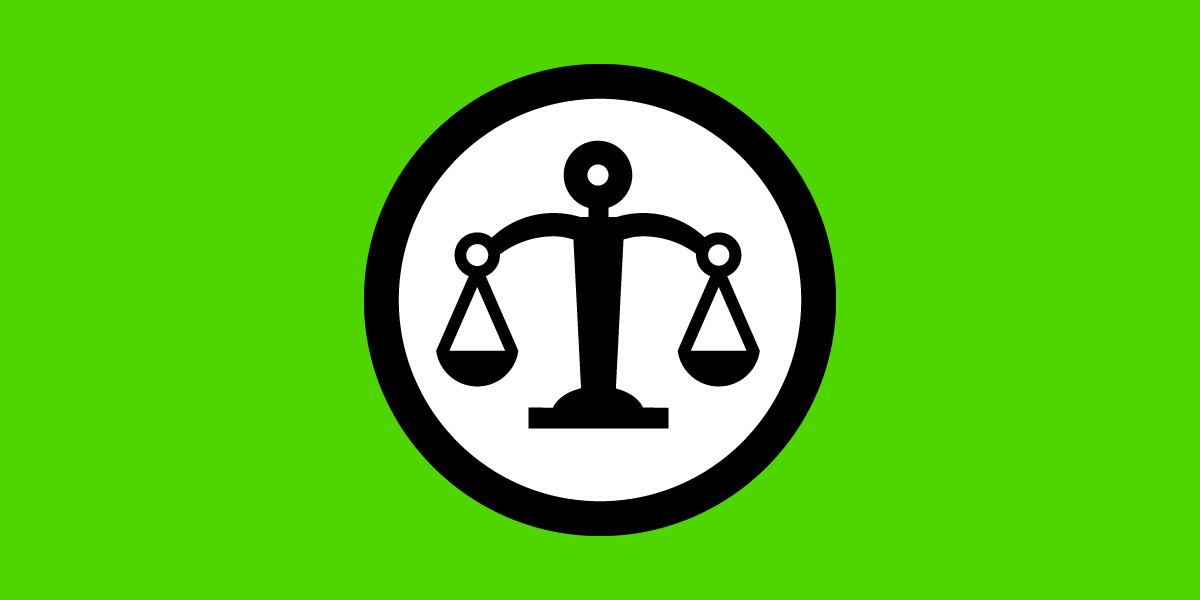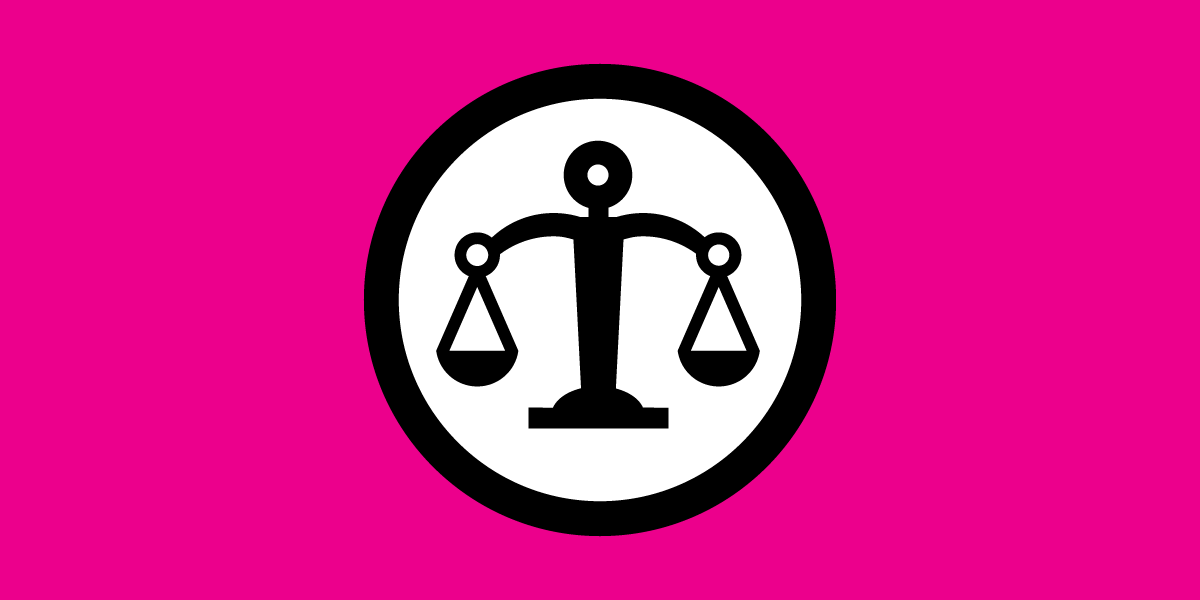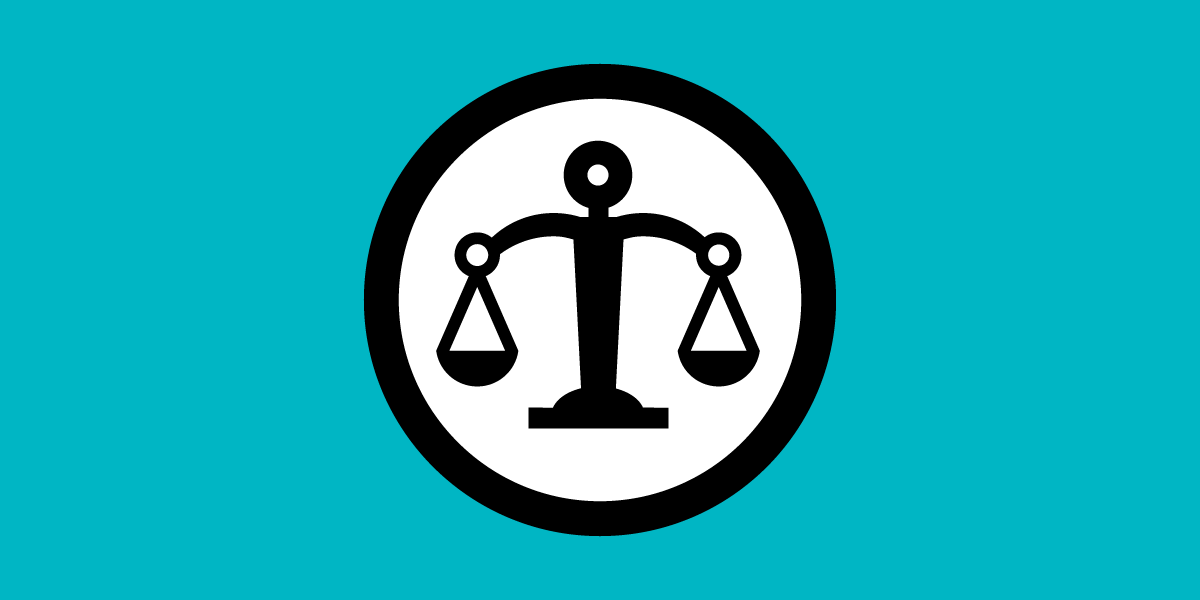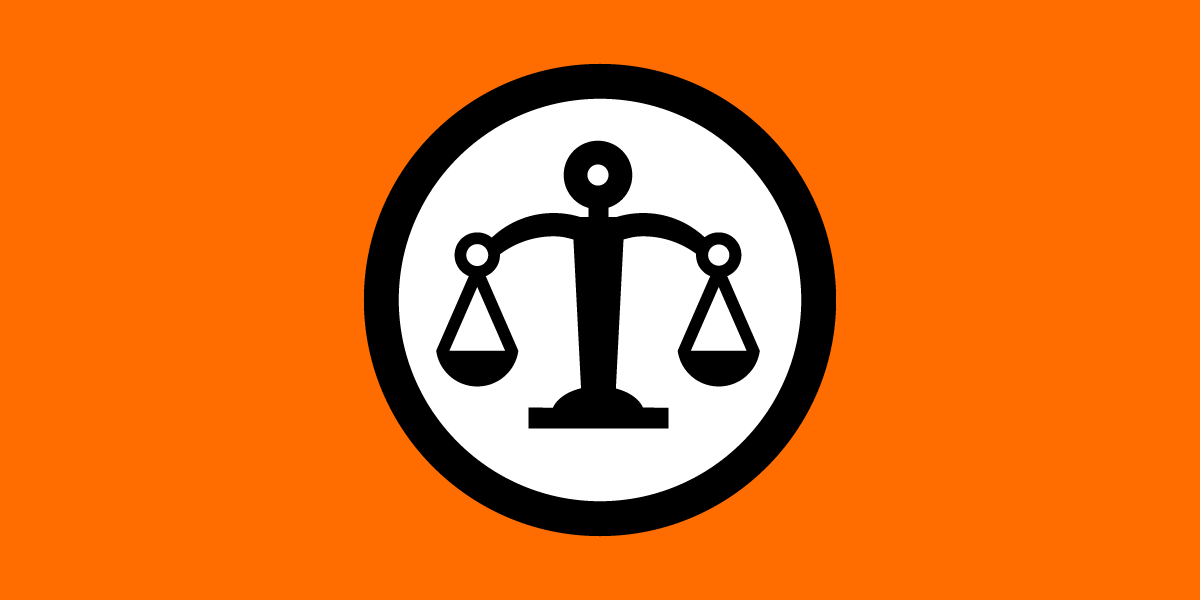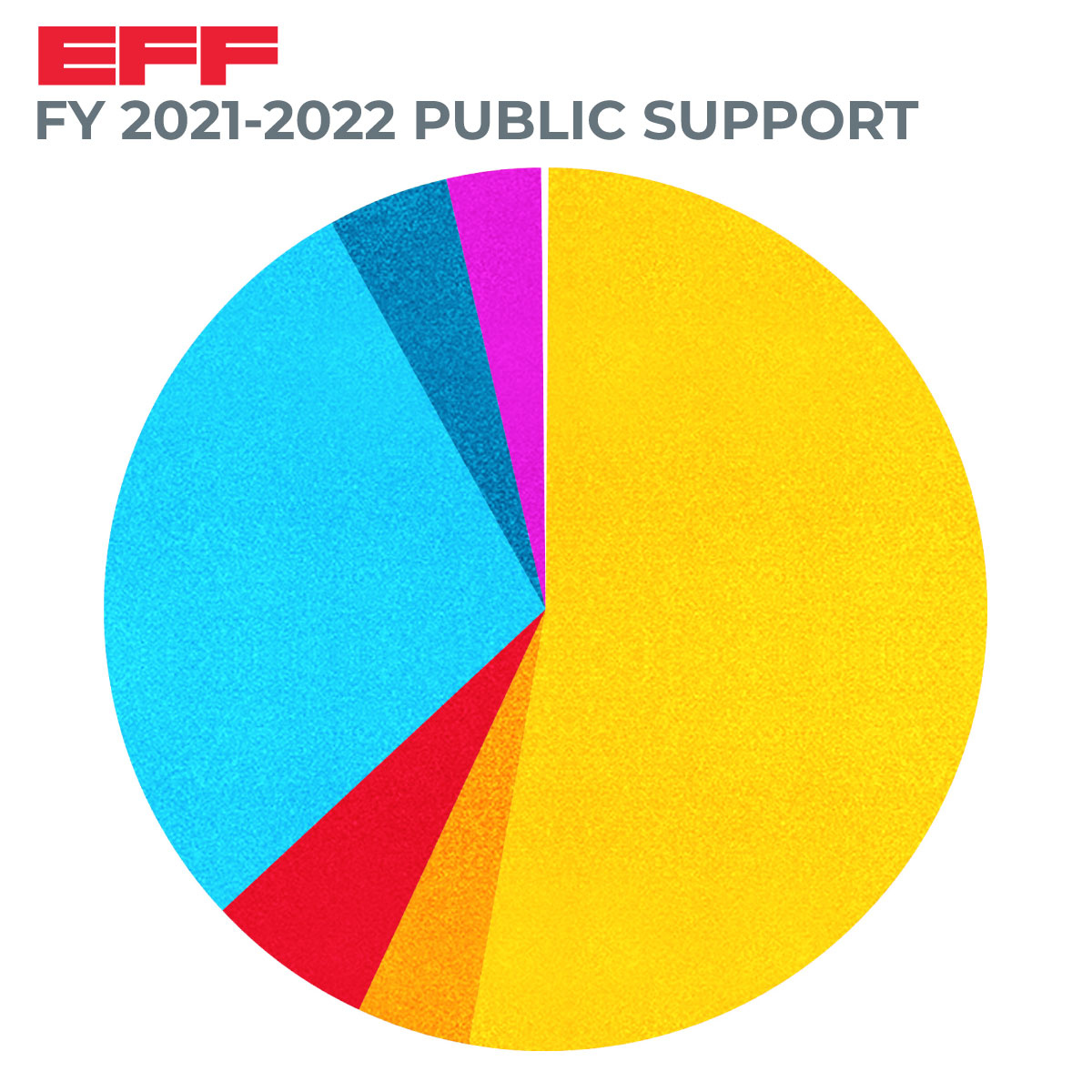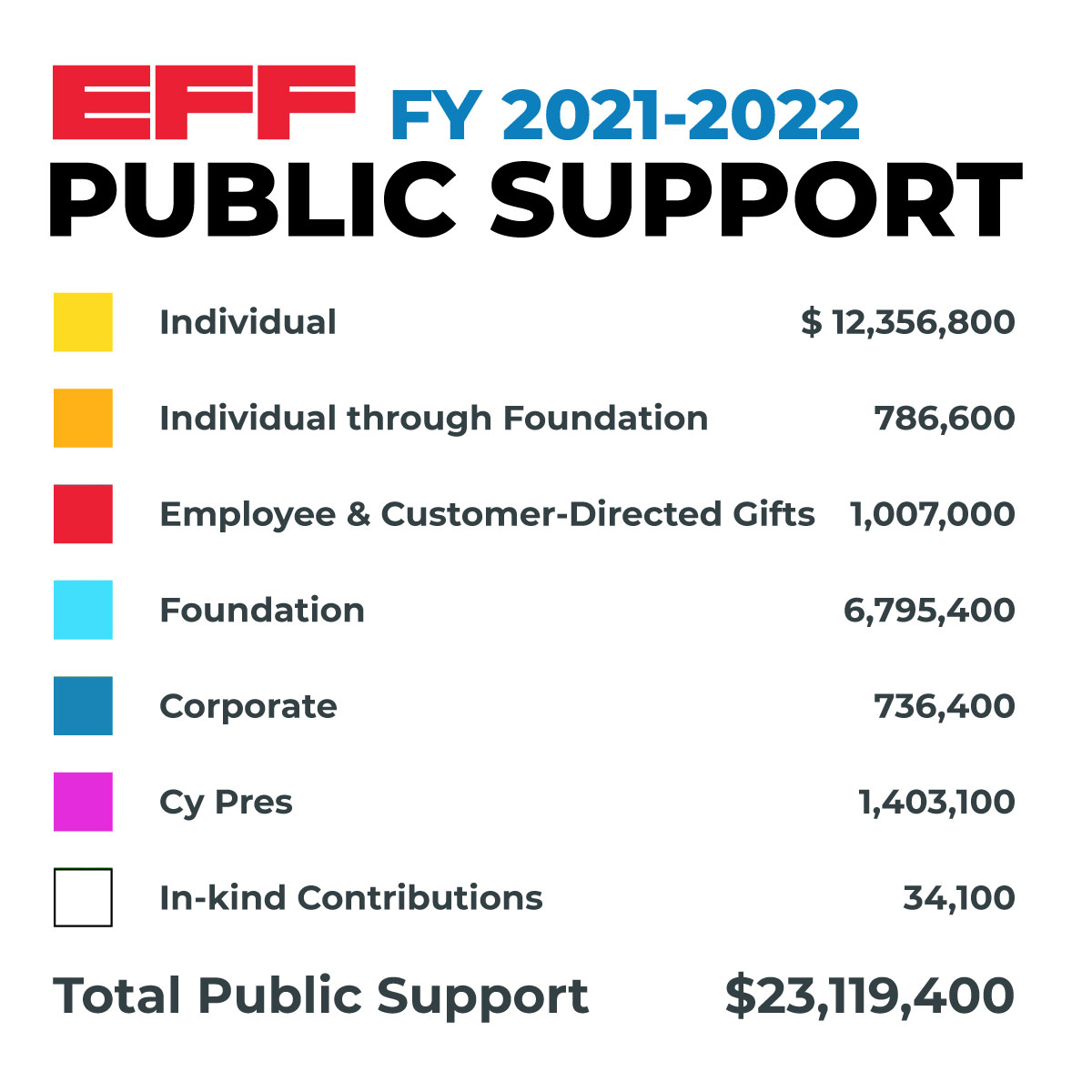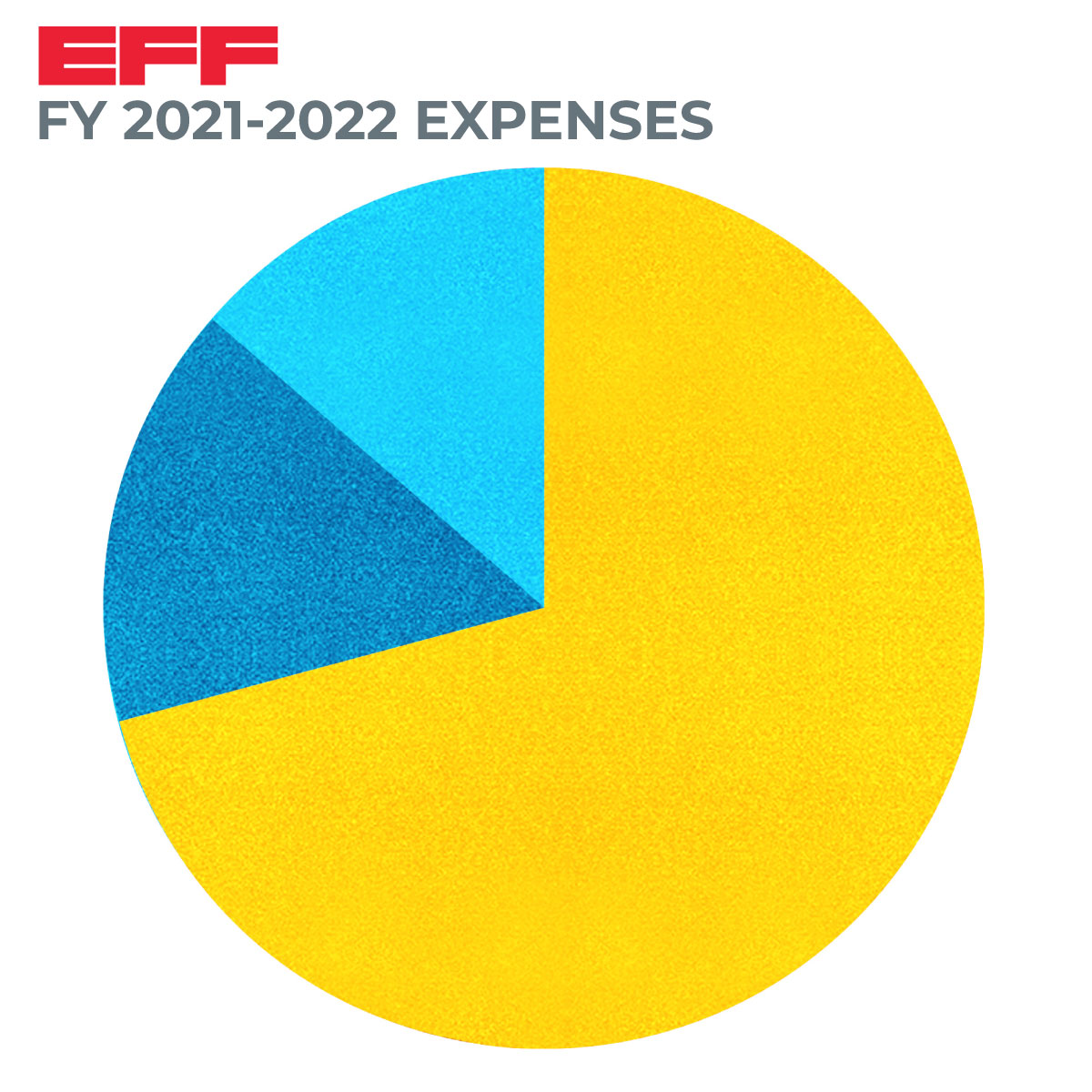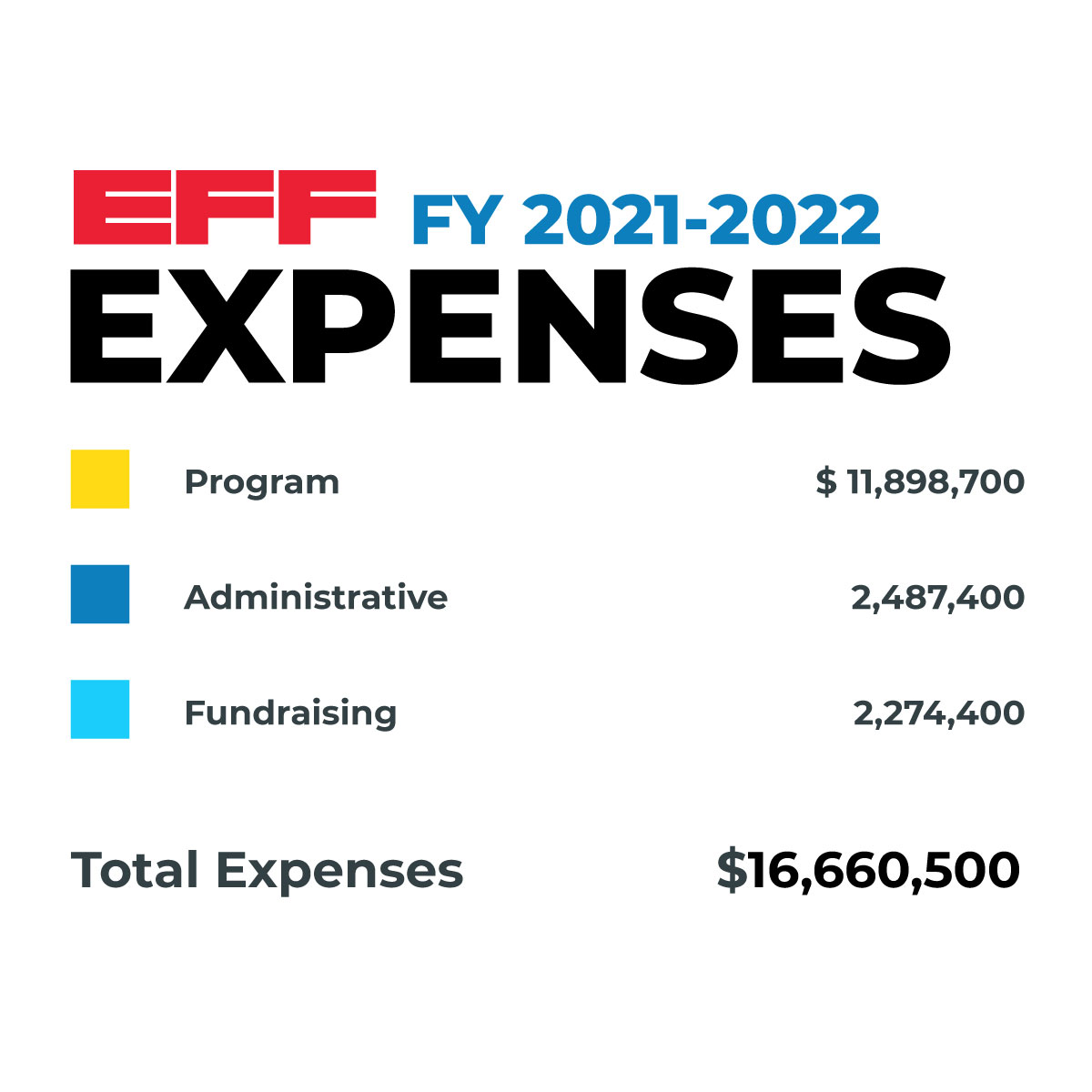
Allison Morris
Chief Development Officer
I am proud to not only lead EFF’s fundraising efforts, but to be a member, too. In 2022, EFF was supported by 34,500 members, including nearly 12,000 sustaining donors. We were also supported by foundation grants and corporate members who share EFF’s vision for a digital world that fosters free speech, privacy, and innovation. This financial support allowed EFF to take on the incredible work you read about in this report and more.
EFF raised over $23 million in the 2021-22 fiscal year. Nearly 60% of our revenue came from individual donors, who joined us through membership drives, including at DEF CON, BSides and other conferences. Almost $5.5 million came from donations of under $1,000. Foundation support increased by $3.7 million from the prior year, thanks to new and returning public foundations that awarded flexible general support—including over $4 million allocated for the next three years. This helped make up for the unrealized loss of investment income that EFF and so many others experienced in the stock market as the economic downturn began. The federal Paycheck Protection Program COVID loan forgiveness program also sunsetted. I am proud that EFF was able to maintain the quality and volume of work in 2022 despite these financial reductions.
Our members and donors did much more than contribute to the financial health of EFF. In our activism, advocacy, and legal, we spoke with the power of 34,500 voices. When working with local, state, national and international governing bodies, you are the power of our movement. As the world learned what it meant to move from the acute phase of the COVID pandemic to the new version of normal, so did EFF. It was wonderful to reconnect with so many people in person, and to maintain relationships with supporters through online engagement.
It is our honor and privilege to be trusted stewards of your financial support. For the tenth year in a row, Charity Navigator, the watchdog non-profit organization dedicated to providing unbiased, objective, data-based assessments of over 9,000 global organizations, gave EFF the highest possible rating of four stars in accountability and transparency.
For every action EFF took—each legislative victory, each spotlight shone on bad actors, each day in court, each technology we developed—you were beside us as a part of the movement. We cannot do this without you. Thank you for your support, your commitment to EFF’s mission, and your trust. Thank you for standing together for digital civil liberties.
Take good care, Allison Morris
Chief Development Officer
Income |
Public Support |
|
|
| Individual Contributions |
|
|
| Individual Contributions over $50,000 |
$3,992,500 |
|
| Individual Contributions $10,000 - $50,000 |
$1,254,000 |
|
| Individual Contributions $1,000-$10,000 |
$1,665,800 |
|
| Individual Contributions under $1,000 |
$5,444,500 |
|
| Total Individual Contributions |
|
$12,356,800 |
| Individual Contributions through Foundations |
|
|
| Individual Contributions through Foundations Over $50,000 |
$410,000 |
|
| Individual Contributions through Foundations Up to $50,000 |
$376,600 |
|
| Total Individual Contributions through Foundations |
|
$786,600 |
| Foundation Grants* |
|
$6,795,400 |
| Cy Pres Awards |
|
|
| Flaum v. Doctors Associates, Inc. (Subway) |
$1,033,500 |
|
| Buchanan v. SiriusXM Radio |
$92,300 |
|
| In re Carrier IQ, Inc. Consumer Privacy Litigation |
$277,300 |
|
| Total Cy Pres Awards |
|
$1,403,100 |
| Corporate Contributions |
|
|
| Employee and Customer-Directed Gifts** |
$1,007,000 |
|
| Other Corporate Contributions |
$736,400 |
|
| Total Corporate Contributions |
|
$1,743,400 |
| In-kind Legal Services |
|
$34,100 |
Total Public Support |
|
$23,119,400 |
Revenue |
|
|
| Net Investment Income*** |
|
-$6,601,800 |
| Attorneys' Fees Awarded |
|
$4,400 |
| EFF Event Income, net of expenses |
|
$23,900 |
| Miscellaneous |
|
$90,700 |
Total Revenue |
|
-$6,482,800 |
Total Support and Revenue |
|
$16,636,600 |
Expenses |
| Salaries & Benefits |
|
$13,740,600 |
| Legal & Professional Fees |
|
$1,253,500 |
| Membership Expenses |
|
$417,600 |
| Amortization & Depreciation |
|
$305,500 |
| Building Expenses |
|
$218,600 |
| Office Expenses |
|
$163,800 |
| Travel Expenses |
|
$34,400 |
| Litigation Expenses |
|
$128,100 |
| Corporate Insurance |
|
$137,900 |
| Planning & Development |
|
$69,700 |
| Furniture & Equipment Expense |
|
$90,200 |
| Other Administrative Expenses |
|
$41,900 |
| Awareness Events |
|
$26,300 |
| Intern Expenses |
|
$15,600 |
| Fundraising Expenses |
|
$9,100 |
| In Kind Contribution |
|
$7,700 |
Total Expenses |
|
$16,660,500 |
Net Income |
|
-$23,900 |
| *Includes over $4M allocated for future years. |
| ** This category includes payments made to match verified employee donations, charity awards chosen by employee groups, and portions of customer purchases designated for charity. |
| *** Includes unrealized losses resulting from changes in the stock market.
|





